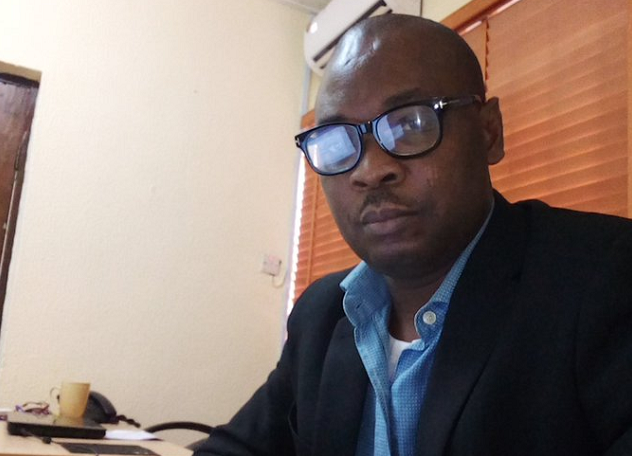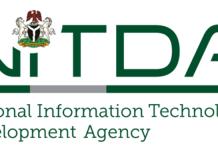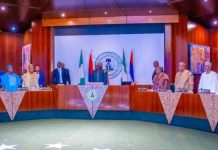The COVID-19 pandemic is not letting up. It continues to race and rage across the globe. With 92 million cases and almost two million deaths, one expects every hand to be on deck to curb the spread.
The World Health Organisation (WHO) advises that if COVID-19 is spreading in your community, stay safe by taking some simple precautions, such as physical distancing, wearing a mask, keeping rooms well ventilated, avoiding crowds, cleaning your hands, and coughing into a bent elbow or tissue.
Yet in Nigeria where the second wave is blossoming crowds have besieged National Identity Management Commission (NIMC) Offices across the country. The very thing that we are supposed to avoid – crowded place.
The Minister of Communications and Digital Economy, Dr. Isa Pantami is directly responsible for this crowd. In December 2020, he issued a directive that made it compulsory for all SIM cards to be linked to the National Identity Number (NIN). So, Nigerians from all walks of life who are yet to get the NIN are forced to visit NIMC offices in an attempt to get it.
READ ALSO: WHO Says COVID-19 Variant From Britain Now In 50 Countries
The minister initially gave telecoms operators two weeks to link subscribers’ registered SIM cards on their networks to their NIN, which is currently being issued by the NIMC. The directive stated that the submission of NIN by subscribers must take place within two weeks, December 16, 2020, and end by December 30, 2020 – it has since been extended by six weeks following the public outcry. It also stated that after the deadline, all SIMs without NINs are to be blocked from the networks.
Well-meaning Nigerians have questioned the wisdom of the directive. Some have asked, “Must it be done right now in the midst of a global pandemic whose second wave is proving deadlier than the first?”
Clearly, the answer is No! It can wait. In fact, it should wait.
Some people have taken to blaming those who are rushing to obey the directive. There are missing the point. Nigerians are afraid to been cut off, of losing their lines, and of being deprived of the link to the world. They have a right to be afraid. Today, connectivity is the currency of the information society, the lifeblood of the digital economy, and the heart of the social age.
Naturally, any threat to cut off that connection would produce the crowd we are experiencing at the NIMC centres. Nobody wants to be cut off.
There is no surprise here. Today, nearly everything rides on the phone. Contacts, financial services, internet connection, and even health care apps are all available on the smartphone.
Nobody wants to be cut off.
In over two decades of democracy in Nigeria, the most direct benefit to the masses of the country is access to mobile telephony. The liberalization of the telecommunications industry and the subsequent success of the auction of digital mobile licenses made the telephone a thing for everyone.
Think about this, from less than 400, 000 connected lines in the year 2000, we now have over 200 million lines. The progress has been massive. Nearly everyone that wants can get a telephone line. Today, Nigeria has one of the largest telecom markets in Africa. Nobody wants to be cut off.
In addition, the sector continues to generate humongous investments both foreign and domestic. Indeed, telecommunications investment has been identified as one with a strong potential to spur economic growth and create employment.
READ ALSO: Many Nigerians Lack Conviction In Govt Information On COVID-19 – Report
Within two decades, the telecom sector contribution to GDP grew from less than one percent to over 10 percent. The sector is resilient, capital intensive, and tightly interwoven with every other sector. This interconnectedness is precisely why nobody wants to be cut off.
The good book says that “the law is made for man and not man for the law.” The Minister of Communications and Digital Economy is insisting otherwise. He appears bent on carrying on with the exercise even though it is now obvious that the timing is wrong. The risk rises every single day the directive is in place. It is time to put it on hold.
Some have made excuses on the minister’s behalf. They say that before issuing the directive, he met with the CEOs of telcos and none raised any objection. This excuse is lame.
Who doesn’t know how Nigeria works? Nigerians are aware that you can’t contradict a ‘Nigerian big man’ unless you are ready for the backlash.
The telcos had little choice in the matter. This is all on the Minister of Communications and Digital Economy. He gave the directive and has refused to reconsider it.
READ ALSO: Schools Must Be Among First Institutions To Be Reopened – UNICEF
The whole idea of the digital economy is not only about nomenclature it is about agility. According to Wikipedia, “Business agility refers to the rapid, continuous, and systematic evolutionary adaptation and entrepreneurial innovation directed at gaining and maintaining competitive advantage.”
Since the change of name of the ministry, it has shown little or no understanding of agility. This must change. The ministry should focus rather on a national database or establish the framework for the harmonization of the existing databases – SIM Registration, Voter Cards, NIN, BVN, Drivers’ License, International Passport.
The NIN and SIM link directive has today become a monster, a coronavirus super spreader. The Chinese say that the best time to plant a tree is 20 years ago and the next best time is today. The whole exercise ought to have been suspended two weeks ago, today is the next best time.
Dr. Pantami, Stop the NIN and SIM link directive now!
It has become a travesty. Is the linking of NIN and SIM important? Yes, by all means!
Must it be done now? No!
It is not a matter of life and death. Verification and harmonization can wait.
Coronavirus infection doesn’t give notice. It won’t wait. The crowd at NIMC Centres is not helping.
Suspend the directive. Put the process on hold. Let this COVID-19 wave blow over. For genuine progress, directives must make sense in this digital economy.
Elvis Eromosele, a Corporate Communication professional and public affairs analyst lives in Lagos.














